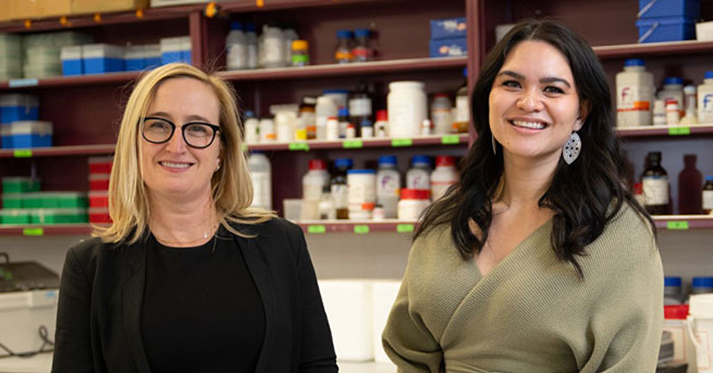
25 Jan NIH-Designated Entrepreneurial Hub for the PNW now at University of Montana
The National Institutes of Health (NIH) has chosen the University of Montana’s L.S. Skaggs Institute of Health Innovation as the new Pacific Northwest location for one of five entrepreneurial hubs across the United States. Dubbed SIHI-REACH, this hub will support academic innovators across the WWAMI region in Washington, Wyoming, Alaska, Montana, and Idaho. The University of Washington’s WE-REACH is pleased to be a part of this new, NIH-funded, national REACH hub.

Drs. Erica Woodahl & Karen Brown – Photo from U Montana
Led by Dr. Erica Woodahl, Professor and Director of SIHI—and a graduate from the University of Washington Department of Pharmaceutics—and Dr. Karen Brown, Principal Scientist in SIHI, this partnership will build on the training and project support structures built by WE-REACH. As the University of Washington’s WE-REACH partners with SIHI-REACH, the hope is to continue the great work that has been done by WE-REACH over the last four years. Goals include leveraging public-private partnerships to support end-to-end innovations for health impact and access, accelerating the transformation of novel discoveries into innovative products, fueling the formation of sustainable start-up companies, and training the next generation of biomedical entrepreneurs. SIHI-REACH also plans to leverage the resources of the ITHS (Institute of Translational Health Sciences) to support the translational journey of academic inventors.
“WE-REACH will be happy to support this partnership and the work of SIHI-REACH as it expands into the broader region, with its all-encompassing support of academic innovators and their innovations,” says WE-REACH executive director, Rodney Ho.
The program is expected to be supported with four years of non-renewable funding from the NIH. Additional details of this partnership can be found at the SIHI-REACH website.
WE-REACH is supported by NIH Grant U01 HL152401 and University of Washington matching funds.
SIHI-REACH is supported by NIH Grant U01 GM152530.
ITHS is supported by NIH Grant UL1 TR002319.







